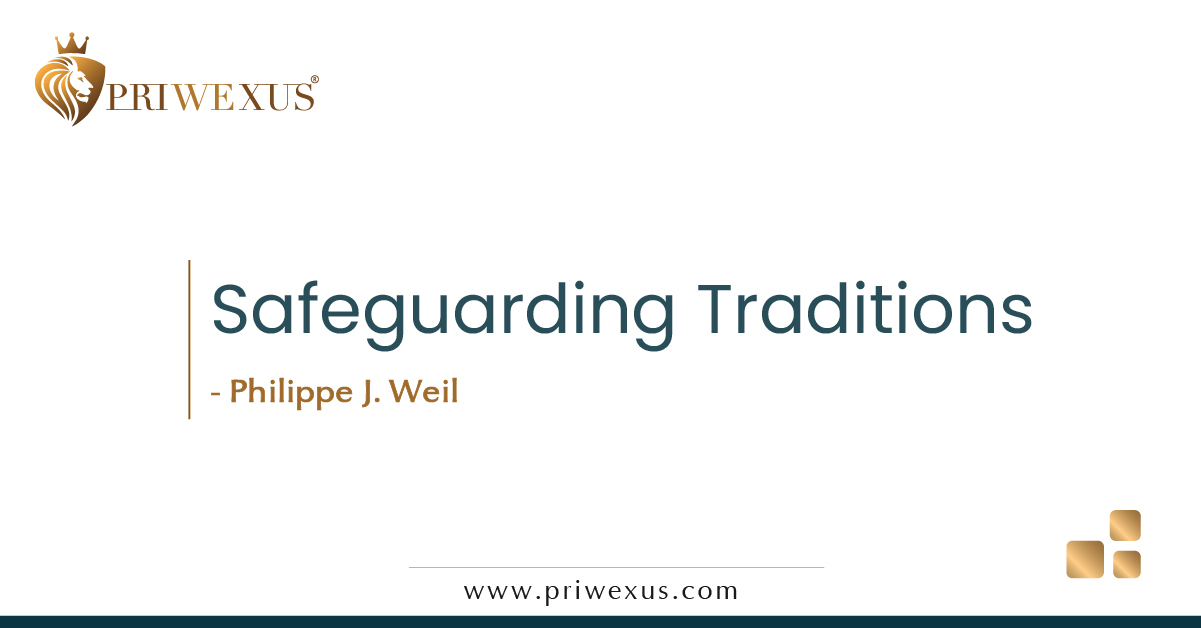
A family foundation provides an ideal structure for applying a cross-generational approach to improving mutual understanding within the family. Through the family foundation, the younger generation tries its hand at cooperation and gains experience in finance and business planning. The senior generation maintains contact through values and connects to the concepts of the next generation. Philippe J. Weil discusses his personal experience.
You were at our round table “Unter uns” (between us) and told us about a family foundation. Philippe J. Weil: That example was about a family foundation established in the 80s by a married couple. The couple decided that 10% of their total commercial and private income would be used for charitable purposes every year. The objective of the foundation was dra ed in a very general way: education, nature conservation, religion, humanitarian aid, elderly care, historic heritage, etc. This led to multiple small donations and a large network of organisations supported. Following the death of first of the two, a representative of the next generation was elected into the foundation board to ensure continuation of the family tradition.
What changed?
Philippe J. Weil: As long as the second parent held the presidency, the foundation’s activities did not change significantly. The new member only initiated classification of the donations to standard categories: “Core” (large donations to four organisations), “important” (historically and ideologically apt) and “small donations”. A budget was defined for the second and third categories with floor and ceiling amounts determined. Thus the “impact” of the donation could be amplified. In addition, a cash reserve was earmarked, to ensure the continued support of projects even in years with diminished income.
A family foundation is a good place for employing a
cross-generational approach and carrying on traditions.
What happened a er the second parent died?
Were the children interested in the foundation-related work?
Philippe J. Weil: I worked with the three children to examine foundation history and available figures going back ten years, in an e ort to pinpoint the leitmotif of giving. The heirs discovered that certain donations had been on-going for nearly fi y years, and decided to continue with those “traditional” gi s. They also decided to seek direct dialogue with these organisations and choose, together with each of them, a new project, which would be pertinent and close to the
hearts of the current and future generations. For example, the donation to a universi that had not been project-related hitherto, was converted into a scholarship fund for the
socio-economically disadvantaged. What’s more, the heirs – all of whom were between 50 and 60 years of age – were already active in chari organisations and planned to continue working on their personal projects outside of the foundation.
If each of the heirs funds his/her own projects,
where does the foundation receive its capital from?
Philippe J. Weil: Traditional donations are awarded from capital earmarked by the founder.
What does the future hold for the foundation?
Philippe J. Weil: The heirs decided to continue depositing 10% of the business income into the
foundation, while each heir decided to allocate an additional 10% of his/her private income to the foundation. The heirs also decided that foundation projects would be selected by the third
generation starting as early as the age of 14 and through the mid-20s.
What is the guiding principle of this process?
Philippe J. Weil: The heirs were aware that the future of the family business could only be ensured if succeeding generations were tied into the family and if family traditions were kept in tact.
Following in the footsteps of the founding generation is very di cult. A family foundation is a
good place for practising cross-generational approach and carrying on traditions. Cooperation familiarises members with one another and promotes appreciation and respect between
generations. If a grandfather is active as a mentor in the foundation, he is most probably also a mentor in business, and will make room for the next generation and the one following it.
Dialogue and mutual comprehension of all family members enable preservation of the family
AND family business.
Founder and Director of P.J. Weil Ltd.
Philippe J. Weil lives in Tel-Aviv. He is married and has three children. Born and raised in Zurich, he completed a banking apprenticeship and gained hold in the private banking sector. His passion is private client consulting. Today, Philippe J. Weil runs a multi-family o ce in Tel-Aviv. His team
supports families in the fields of asset management and estate planning, in case of trusts,
generation changes, family reunions, mediations, art collection management and much more. For Philippe J. Weil, philanthropy is one of the essential tools to establish a family tradition (legacy).
